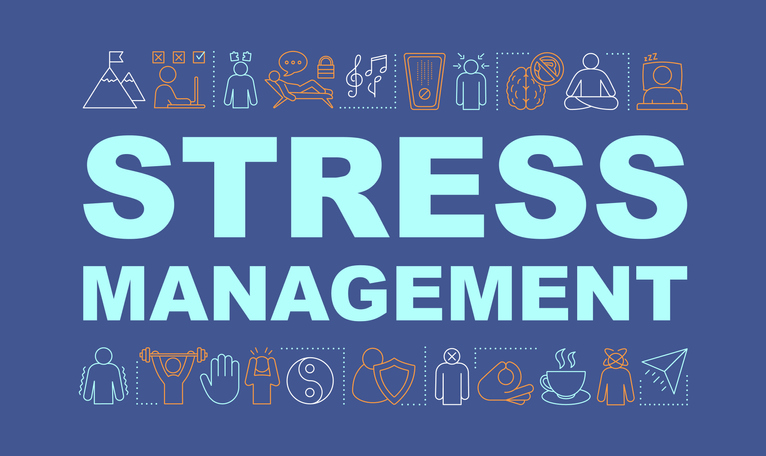Wellness
The 4 A’s of Stress Management

Stress is the emotional or physical tension the body creates when presented with events or thoughts that cause worry, frustration, anger or nervousness. Although short-term stress can help avoid danger, long-term stress can cause health issues.
The body releases a hormone, called cortisol, in response to stress. Cortisol alerts the brain, tenses the muscles, and increases the pulse rate. In the short-term, this helps individuals avoid danger; however, in the long-term, it can harm the mind and body. The chronic release of cortisol can increase the risks of high blood pressure, heart disease, obesity, depression, anxiety, diabetes, and menstrual problems. It can also worsen existing health conditions.
When stress exceeds the ability to cope, balance in the mind and body need to be restored. Stress management is an effective tool to accomplish this. The four A’s of stress management are to avoid, alter, accept and adapt.
Avoid
Stress can often be avoided by planning ahead, rearranging surroundings and carrying a lighter workload. Approaches include the following:
- Take control. Taking control of stressful, routine tasks helps to build confidence. For example, leaving earlier for work or taking a new route can ease the stress of traffic. Preparing lunch can ease the stress of waiting in a line during lunchtime.
- Avoid bothersome people. Physical distance from someone who is causing stress can relieve tension.
- Say “no.” Most people have a lot of responsibilities and very little spare time. Saying “no'' to social invitations, extra responsibilities at work, or volunteer requests can be difficult, but it is often needed for personal mental health.
- Prioritize a to-do list. Making a to-do list helps the mind let go of stressful thoughts regarding required tasks. Scratching an item off the to-do list can create a feeling of accomplishment.
Alter
When stressful situations cannot be avoided, behaviors, communication, and time management may need to be altered. Approaches include the following:
- Ask others to change their behavior. Small issues often snowball and turn into huge problems. It’s okay to ask others to change bothersome behavior; however, it’s important to listen to others about personal bothersome behavior, too.
- Communicate openly. Honesty is always the best policy. When sharing feelings, using “I” statements rather than “you” statements helps to negate any blame on the other person.
- Manage time better. Grouping similar tasks together can increase efficiency, resulting in lessened stress.
- State limits in advance. Prior to engaging in a long conversation, letting the other person know if time is limited avoids any hard feelings.
Accept
Many times, acceptance is the best way to avoid stress. Approaches include the following:
- Talk with others. Feelings are legitimate even if frustrating situations cannot be changed. Discussing stressful situations with a friend who actively listens and understands is helpful.
- Forgive others. Forgiving takes practice. Learning forgiveness releases negative energy from the mind and body.
- Practice positive self-talk. Negative thoughts tend to feed off each other, creating additional negative thoughts. Positive self-talk can reduce stress and help maintain objectivity.
- Learn from mistakes. Mistakes are inevitable and should be used as teachable moments rather than create feelings of self-loathing.
Adapt
Adapting often involves changing expectations, which in turn, lowers stress levels. Approaches include the following:
- Adjust standards. Perfection is impossible. Striving for perfection can cause feelings of frustration and guilt. Adjusting personal expectations can reduce stress.
- Practice stopping bad thoughts. Negative thoughts should immediately be replaced with positive ones. Refusal to replay a stressful situation in the mind may actually cause it to be less stressful.
- Reframe the issue. Looking at situations from a different viewpoint is often helpful. For example, rather than being frustrated for using a sick day from work, use the day to catch up on television programs or read a book.
- Adopt mantra sayings. Mentally repeating confident sentences, such as, “I can do this,” has a positive effect on stressful situations.
- Create a list of happy resources. Making a list of happy experiences, situations and thoughts can put things into perspective. Looking back on this list during a stressful situation can help calm the mind.
- Look at the big picture. Figuring out if something will matter in one year or in five years is important. If it won’t, letting it go can relieve stress.
Stress is a part of everyday life; however, practicing the 4 A’s of stress management can help.


















